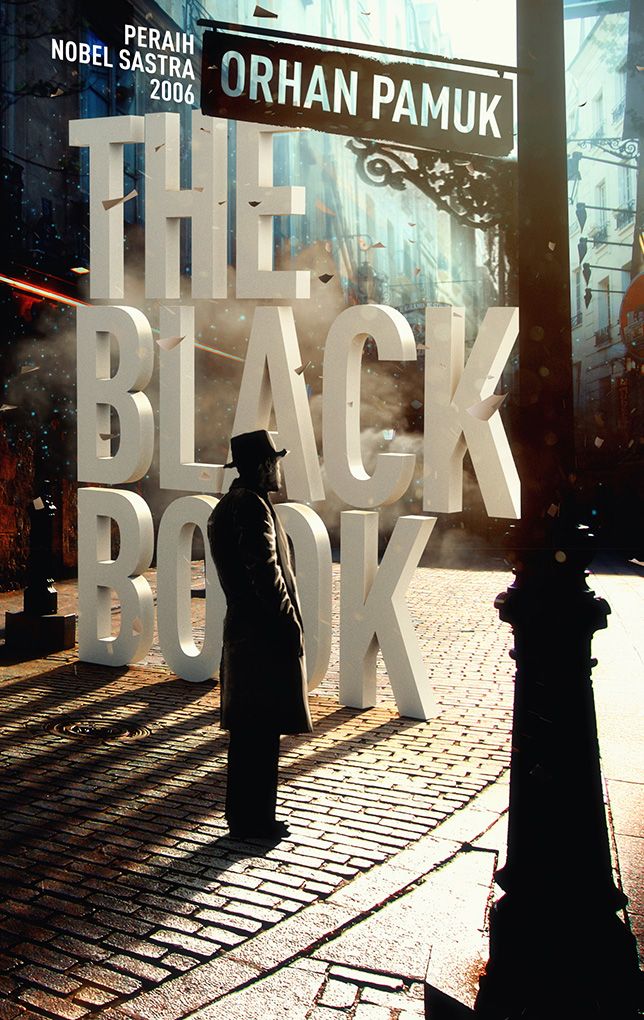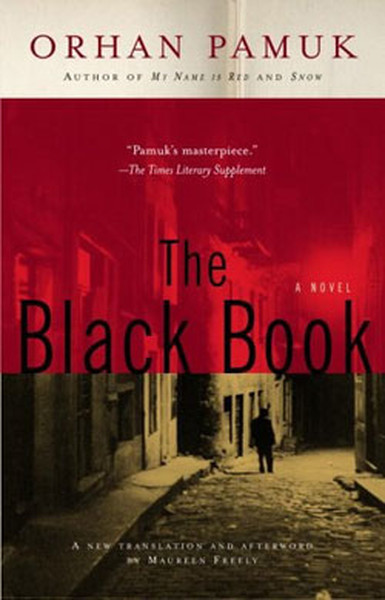The Black Book - Orhan Pamuk

"The Black Book" (Kara Kitap) by Orhan Pamuk is a novel that blends elements of mystery, philosophical inquiry, and postmodern narrative techniques. Here's a brief analysis:
- Genre and Style:
"The Black Book" can be categorized as a postmodern novel with elements of detective fiction. Pamuk's style in this novel is characterized by a mix of intellectual exploration, metafiction, and a nonlinear narrative structure. The story is set in Istanbul and revolves around the character Galip.

- Plot Summary:
The novel follows Galip, a lawyer and newspaper columnist, as he searches for his missing wife, Rüya. Galip's investigation leads him into the labyrinthine streets of Istanbul, where he encounters a variety of eccentric characters and becomes entangled in a web of mysteries. The narrative takes unexpected turns, blurring the boundaries between reality and fiction.
- Themes:
- Identity and Duality: "The Black Book" explores the theme of identity, both personal and collective. The characters grapple with questions of self-discovery and the multiple facets of their identities. The novel suggests that identities can be fluid, subject to change and transformation.
- Mysticism and Reality: Pamuk weaves elements of mysticism and surrealism into the narrative. Dreams, myths, and mystical experiences play a significant role in the story, challenging the conventional boundaries between reality and imagination.
- Istanbul as a Character: Similar to Pamuk's other works, Istanbul is a prominent element in "The Black Book." The city is not just a setting but a dynamic and enigmatic character, influencing the events of the story and reflecting the complexities of Turkish culture.

- Narrative Techniques:
Pamuk employs a nontraditional narrative structure in "The Black Book." The novel combines first-person and third-person perspectives, and it frequently shifts between different narrative styles, including newspaper columns, stories within stories, and dialogues with the reader. This multifaceted approach adds layers to the storytelling and reinforces the theme of multiple realities.
- Literary References and Intertextuality:
Pamuk incorporates references to various literary works, including Turkish and Western literature. The novel engages in intertextuality, with characters embodying literary archetypes and stories echoing classic literary motifs. These references contribute to the novel's intellectual depth and complexity.
- Philosophical Inquiry:
The novel engages with philosophical questions, particularly regarding the nature of reality, existence, and the search for meaning. Characters engage in conversations that explore existential and metaphysical themes, adding a layer of intellectual depth to the narrative.
- Language and Communication:
The novel explores the limitations of language and the challenges of communication. Characters struggle to express their thoughts and emotions adequately, and the novel reflects on the gaps and misinterpretations that can occur in human communication.
"The Black Book" is a challenging and intellectually stimulating novel that invites readers to unravel its mysteries while contemplating profound questions about identity, reality, and the nature of storytelling. Pamuk's narrative inventiveness and philosophical explorations contribute to the novel's reputation as a complex and thought-provoking work.
I recommend you to watch why you should read ''The Black Book'' for those who are interested in it;
WHY SHOULD YOU READ THE BLACK BOOK BY ORHAN PAMUK;
References;
- Andrews, \Walter G. "The Black Book and Black Boxes: Orhan Pamuk's Kara Kitap". Edebiyir. LI: 105–129.
- The Black Book by Orhan Pamuk, reviewed by Ted Gioia (Postmodern Mystery)
- [http://www.independent.co.uk/arts-entertainment/three-authors-in-search-of-a-body-the-black-book-by-orhan-pamuk-trs-guneli-gun-faber-pounds-1499-1595971.html A review of the book in The Independent
- [https://www.theguardian.com/books/2006/aug/06/shopping.orhanpamuk A review of the book in The Observer
Thank you for reading!
You can complete great comment tasks at here. #theblackbook #karakitap #orhanpamuk #novel #bookreview #audiobook #culture









































